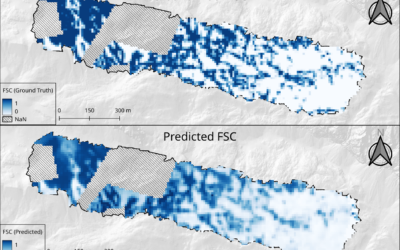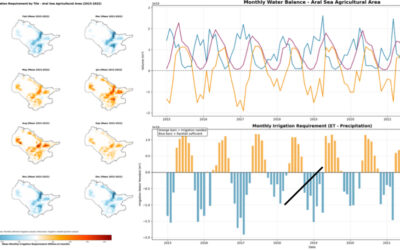On the 21st of February, we were honored by the visit of Prof. Dr. Luis Bettencourt from the University of Chicago and Prof. Dr. Carolin Biewer from the University of Würzburg to the Earth Observation Center (EOC) of the German Aerospace Center (DLR). Collaborations at the intersection of geolingual studies, remote sensing and geospatial analysis, urban development and sustainability were discussed.
Prof. Bettencourt gave an inspiring guest lecture titled “Using high-precision remote sensing for localizing sustainable development worldwide” at one of the seminar series organized by our Department head Prof. Hannes Taubenboeck (“Global Urbanization and Remote Sensing”) at DLR-EOC.
Here is abstract of the lecture: Remote sensing has undergone an enormous technological transformation, with submeter high-precision imaging now the norm worldwide. In this talk, some of the new possibilities of these technological developments for supporting sustainable development goals in Sub-Saharan Africa are explored, where extensive and detailed local statistics remain very sparse. Specifically, it is discussed how all building footprints can now be identified and mapped (with the aid of machine learning and other techniques), along with streets and other detailed functional features of human settlements. This information can be combined to create quantitative characterizations of every street block on Earth, including its population, access to infrastructure and services, and one can infer many of their development characteristics. The presentation is concluded by a discussion of the prospect for remote sensing to provide a real-time worldwide characterization of neighborhoods and human development (millionneighborhoods.org), working alongside local communities and governments to promote well-being interventions that can be faster, fairer and more sustainable.










